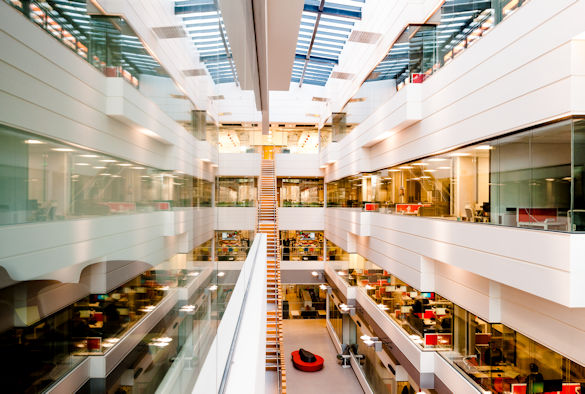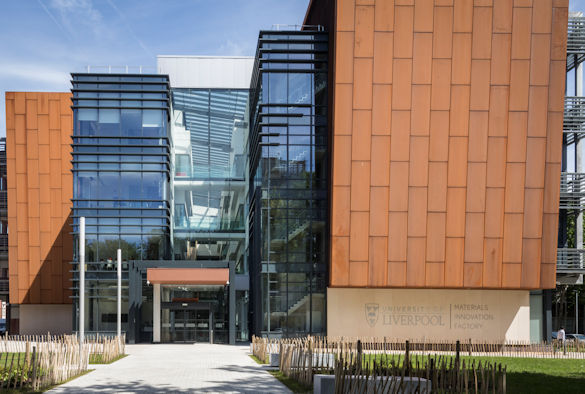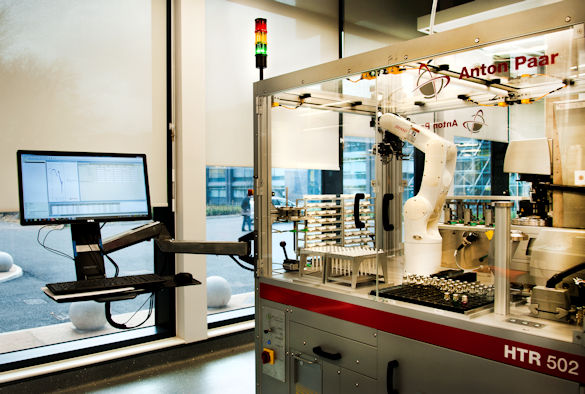Developing next-generation sustainable materials for consumer products
Published on

A new collaboration between the University of Liverpool, Unilever and the University of Oxford will seek to transform the global chemical supply chain and help the UK achieve Net Zero by 2050.
The £8.8million EPSRC Prosperity Partnership aims to reduce the carbon footprint of consumer products such as shampoo and laundry detergent through improved chemical production.
The project will develop new scientific platforms that will provide sustainable routes to the chemicals used in consumer products from waste such as carbon dioxide and other renewable feedstocks.
Prosperity Partnerships are business-led research partnerships between leading UK based businesses and their long-term strategic university partners.
The University of Liverpool has a long-standing strategic relationship with Unilever encompassing research and development, technology innovation and spin out activities.
The University’s Materials Innovation Factory (below) was established with Unilever. Scientists from both organisations collaborate in this state-of-the-art £81million facility, reflecting their shared vision of the role of automated, data-driven routes for materials discovery. These new routes will deliver the next-generation catalysts and polymers required for the new Net-Zero chemistry of consumer products.

Royal Society Research Professor Matthew Rosseinsky from the University of Liverpool is the Principal Investigator of the project.
Professor Matthew Rosseinsky FRS from the University of Liverpool’s Department of Chemistry said: “We are excited to work with Unilever and the University of Oxford on this ambitious research programme that will open new paths to the sustainable catalysts and processes needed to access the renewable and bio-degradable materials for the consumer products of the future. This project reflects our shared commitment to achieve Net-Zero through co-creation of new chemical science.”
Richard Slater Chief R&D Officer at Unilever said: “To achieve the UK’s Net Zero goal by 2050 we need a transformation of the global chemical supply chain. This partnership is an important milestone towards this, driving forward important research on new renewable and biodegradable materials for everyday products, such as laundry detergents.
"We're delighted to bring together our world-leading scientists alongside those from the University of Liverpool, the University of Oxford, and our other partners, to tackle this issue."
Business Secretary Kwasi Kwarteng said: "By reducing the carbon footprint of everyday household products such as shampoo, this pioneering collaboration between Unilever and the University of Liverpool will make a real impact on eliminating our contribution to climate change and helping the UK achieve its net zero ambitions. This is part of our efforts to put the funding and structures in place to ensure we build back better through innovation, drive local economic growth and cement the UK’s status as a science superpower.”
This Prosperity Partnership will also help achieve N8 Net Zero North (NZN), an initiative which connects the Northern Powerhouse’s science and research capabilities, skills providers and businesses to forge a green recovery from Covid-19 while simultaneously putting the UK at the forefront at the global drive for net zero carbon.
Professor Anthony Hollander, Pro-Vice-Chancellor for Research & Impact at the University of Liverpool, said: “This excellent collaboration with Unilever takes our partnership to a new level by accelerating the development of new materials to achieve clean growth. These collaborative university industry partnerships maximise the contribution that our scientists make to develop the new technologies, processes and skills that are needed to achieve the UK’s and the North of England’s transition to a net zero economy.”
The £8.8million EPSRC Prosperity Partnership is led by Unilever in collaboration with the University of Liverpool and the University of Oxford. It is one of nine Prosperity Partnerships supported by an overall investment of £75million from business, academia and UK Research and Innovation’s (UKRI) Engineering and Physical Sciences Research Council (EPSRC) and Biotechnology and Biological Sciences Research Council (BBSRC).
